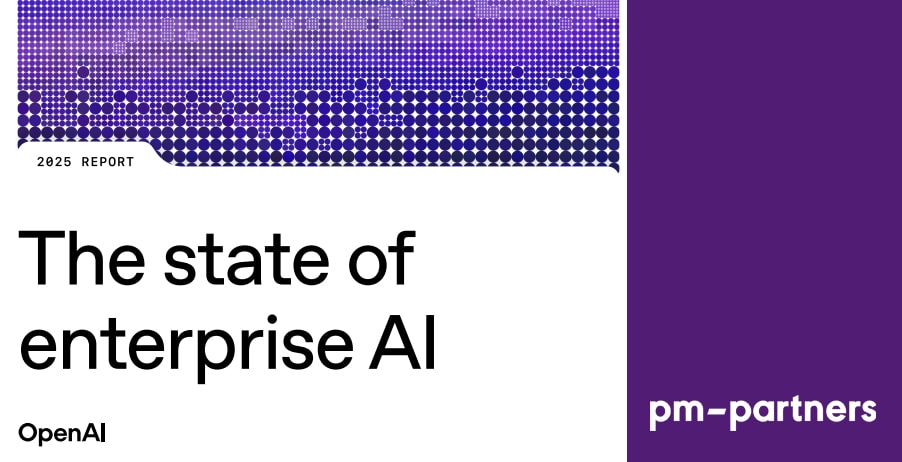Project management trends to watch in 2024

The project management sector is seeing dynamic changes across the professional spectrum, from technological advances to labour shortages. Mike Boutel, Head of Training at PM-Partners, shares his predictions for the five trends likely to pick up speed in 2024.
The project management space has long been a harbinger for changes in the wider organisational landscape due to its versatility and reach across a broad spectrum of industries. Some of the trends becoming evident are more acute in the delivery sector as projects become small-scale pilots for change.
These are the areas to watch in 2024 and how they might affect both project management as a practice and project delivery within organisations – plus change the wider world of work and business.
1. AI, data analytics and automation in project management
Technological advances are always high on the list of trends to watch for the project sector; not only are project managers often at the forefront of creating new technology, project and delivery teams are also frequently deployed to test, implement and roll out technology within their organisations. This coming year, artificial intelligence (AI), data analysis and automation will drive some of the key changes we’re likely to see in this space.
AI is a buzzword, but unfortunately its capabilities are still poorly understood; this technology is not likely to replace project management roles but instead, with improvements to data analytics, help ease some of the more tedious aspects of decision-making including collating data and providing insights and evaluation – all at unprecedented speed.
Used well, AI can support risk management and knowledge management by highlighting potential issues based on prior projects and predictive scenarios, plus automate mundane tasks such as scheduling, logs and reporting. With the rise of AI in this context, project practitioners can expect to take a more strategic role rather than devoting significant time to administrative tasks.
2. Agile goes beyond projects
The success of agile for projects, paired with the dynamic business environment organisations have endured in recent years, has recommended the implementation of agile at an organisational level to help keep pace with change and increase speed to market. The adoption of agile beyond projects – particularly outside of software development – will continue, according to Digital AI’s State of Agile Report: 13 per cent of respondents use agile practices for IT and software development teams, 26 per cent for company-wide digital transformation and 61 per cent for both.
However, the transition is not without its teething problems. The report also shows that half are using agile in combination with other approaches and almost two in five are having issues with leadership buy-in and direction. Project teams that have already adopted agile are likely to be the ones to introduce agile as a mindset and a methodology to the rest of the organisation, or at least become advocates or ambassadors for the transition.
Popular agile frameworks such as SAFe® are regularly updated and well-supported with certification improvements and comprehensive content.
3. Project management talent shortage
Labour shortages continue to affect the project management sector both in Australia and internationally, according to the Project Management Institute. In addition to project-specific roles, there has also been an increase in demand for project skills in adjacent roles as projects become the preferred way for organisations to experiment and progress, as well as implement change.
The Australian Institute of Project Management (AIPM) report The State of Project Management in Australia indicated that the most highly experienced project managers were reaching retirement age, so to address the forthcoming exodus, organisations need to attract a new generation and invest in developing emerging project professionals.
4. The rise of workplace flexibility
While project roles have always had a degree of flexibility in them, the response to Covid-19 has accelerated the acceptance of flexible working arrangements at an organisational level. In the next 12 months, expect this to become more of a must-have for candidates seeking a project role rather than a nice-to-have.
A report by human resources and recruitment company Randstad found that more than four in five Australians considered flexibility in terms of working hours to be important. Remote work and flexible working hours are two key ways organisations can provide genuinely flexible working conditions, and as concerns grow around attracting and retaining talent in a tight labour market we’re likely to see momentum gathering for more radical workplace changes too.
After a raft of successful trials, many nations including Australia are considering a four-day work week, with reported benefits including improved staff morale and productivity as well as greater talent attraction. Recent research from recruiter Robert Half has revealed that just over a third of Australian companies expect their organisation will transition to a four-day model within the next five years.
5. Learning and development as a project management investment
In 2024, expect learning and development (L&D) to increase as another retention strategy for project roles; according to the AIPM, “employer-supported development is identified as a strong value driver for aspiring project management professionals”.
One thing that’s changing with regard to L&D, is that training now goes beyond traditional project management and agile delivery certifications. While these methods and milestones are still vital for practitioners to progress and grow, there will be more and more demand for knowledge and skills in future-focused areas.
The ability to run projects more sustainably will be key as we all strive to meet global sustainability goals. Likewise, developing the technical skills to leverage digital platforms and apply effective cyber security measures from the outset of an initiative should also be a priority as technology continues to advance. Furthermore, organisations now recognise that training is just one piece of the puzzle – development through capability uplift, which embeds and refines training, is becoming key to improving overall team performance.
Many of the changes and challenges of the past year have led organisations to adopt strategies, tools and technology in response, and it is often the project team that becomes the avant-garde for these solutions. Project management trends for 2024 are therefore good indicators of organisational trends, so watch for the development of AI and the implementation of agile and pay attention to some of the resolutions to emerge from the project talent crunch as they will shape many other sectors and industries over the coming year.
Prepare your project team for the coming year. PM-Partners offers both training and capability uplift for your team and advisory services for your organisation to ensure your delivery stays on track. Contact us or call 1300 70 13 14 today for more information.

About The Author
Mike Boutel
Head of Training at PM-Partners
Mike is well recognised as an industry-leading facilitator, speaker and thought leader with more than two decades of experience in business management, training, coaching and project management. As a qualified trainer in several global best practice solutions qualification courses, he oversees the training and certification of up to 10,000 individuals each year and has niche expertise in modern portfolio, programme and project management practices.
An entrepreneur in his own right, Mike has first-hand experience of managing high-performing teams and running profitable businesses. During the COVID-19 pandemic he applied his expertise in enterprise agility and risk management to his role at PM-Partners to successfully pivot to virtual training services within a three-week period. He subsequently then led the company's transition to a fully-integrated hybrid offering.






